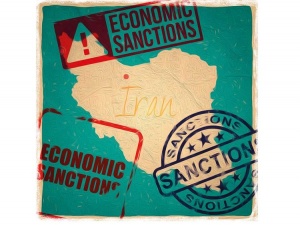Fourteen years ago, the world became aware of the many atrocities committed by private military contractors (PMCs) when Blackwater killed Iraqi civilians. The incident strained relations with the Iraqi government and proved counterproductive to American counterinsurgency efforts. PMCs have existed in conflicts for hundreds of years, but they have been under the international community’s radar during the War on Terror. Over a decade later, the European Union has sanctioned the Wagner Group for human rights abuses.
The Wagner Group
The Wagner Group, a private military contractor, is reported to be led by Dmitry Utkin and has been present in various conflicts throughout the globe. A significant core of the group originated from another mercenary group called the Slavonic Corps, which operated in Syria to protect oil fields.
The first instance of the Wagner Group appearing in a conflict was during 2014 in eastern Ukraine, where Russian-backed separatists declared independence. Before leading the group, Utkin had worked in the Russian military intelligence service as a brigade commander. The group has also been linked to the Russian government, which they have denied. However, this contrasts reports that the Wagner Group operates in areas where the Russian government is known to also operate.
The Group’s Global Activities
In addition to Ukraine, the Wagner Group has operated in Syria, much like the mercenary group which preceded it. While in Syria, the PMCs have been accused of a wide variety of abuses which has caught the attention of international watchdog organizations. Among the most egregious was the reported torture of a Syrian man in 2017. They have also been alleged to have attacked American special forces in concert with pro-Assad forces.
An Expanding Presence
Furthermore, the group has expanded its operations within Africa to include several conflict zones. An infamous theater for its activities has been within the Central African Republic. The mercenary group was reportedly brought in at the behest of President Touadéra to help fight against rebels who opposed his rule. They, however, took liberties to the mandate given to them by their host as they were found to have committed several human rights cases of abuses. These abuses range from executions and torture to groundless imprisonment.
Another engagement of the group in Africa, which demonstrates their growing foothold in the continent, has been that of Libya. It is reported that the organization first appeared in Libya in 2019 to aid forces fighting the UN-backed government. The Wagner Group, unsurprisingly, engaged in nefarious behavior, which demonstrates a larger pattern of disregard for international law. Among such actions have included the placement of mines within noncombatant areas.
Alarmingly, there have been growing concerns of the Wagner Group continuing this disturbing pattern in a potential deployment to Mali. This comes on the heels of Mali denying the deployment of UN peacekeeping efforts to help stabilize the country. An invitation of the organization would certainly contribute to a deterioration of security for Mali’s citizens.
More alarming, it appears that governments in the region are turning away from long-established international norms for diplomacy and instead turning to mercenary groups to resolve political opposition.
Mercenaries only serve to instill a greater hatred for the governments that employ them and drive individuals to seek out organizations that oppose them. In some instances, they join extremist organizations that provide them that opportunity, as well as economic security which their governments have denied them.
Policies to Curtail Mercenary Activity in Africa
For the Wagner Group to operate within Africa, there must be an understanding of what allows them to do so. The reason stems from the political instability within the region as well as the perceived ineffectiveness of UN peacekeepers to bring stability to the states.
A critique of UN peacekeeping missions is with merit as there have been allegations of misconduct regarding different peacekeeping operations throughout Africa. One of the most recent is the allegations of abuse within the Central African Republic, which have damaged the credibility of the institution. Additionally, the procurement of mercenary groups allows these governments to not abide by international law and use whatever means are at their disposal to eliminate armed opposition.
Thus, it is necessary for nations who contribute to UN peacekeeping missions and the institution itself to implement harsher penalties on their citizens who have been found to be guilty of abuses while serving in an official capacity. Without institutional integrity and trust from fragile states, they will look for alternatives, such as mercenary groups.
Nations who comprise the UN should also consider providing more resources to peacekeeping missions. These resources may be more effective in providing credible deterrence and bringing stability to the region through tried and tested diplomacy.
Lastly, the international community must pressure nations that employ mercenary groups through sanctions and forbid their citizens from engaging in such efforts.
Christopher Ynclan Jr., Counter-Terrorism Research Fellow



